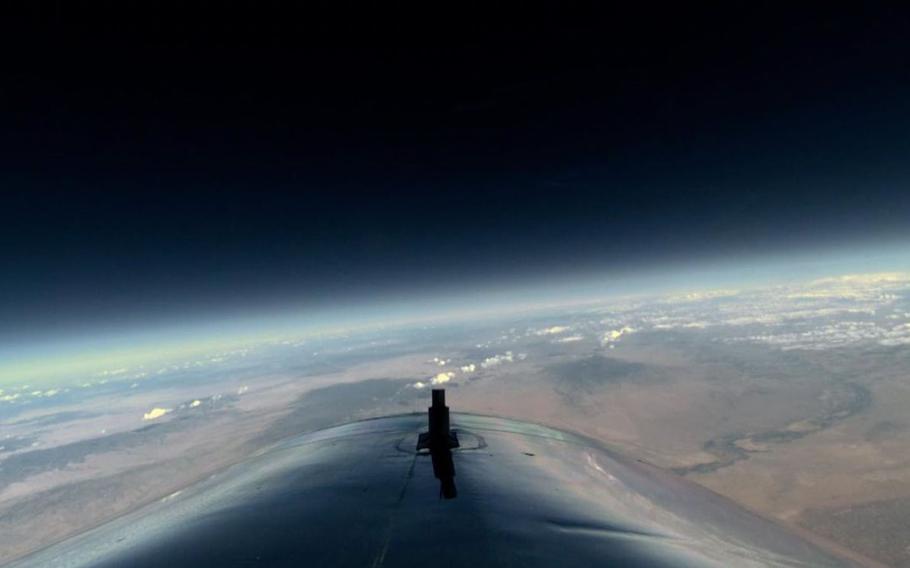Virgin Galactic says it has Federal Aviation Administration approval to fly customers into space, making it the first spaceline to cross that hurdle, the company announced Friday.
The milestone comes at a key moment in the space race: On July 20, Jeff Bezos will be on board when one of his Blue Origin rockets makes its first crewed spaceflight. Virgin Galactic and its British billionaire owner Richard Branson have left the door open for the founder to attempt to reach space before Bezos, although the company has not confirmed that.
(Bezos founded Amazon and owns The Washington Post)
Meanwhile, Elon Musk’s SpaceX recently completed its third human spaceflight in less than a year. The company has also been awarded a NASA contract to develop a lunar lander.
Approval from the FAA comes after Virgin Galactic completed the third successful test flight of its spaceship Unity in late May, its first spaceflight from Spaceport America hub in New Mexico. The flight achieved a speed of Mach 3 and reached space at an altitude of 55.5 miles, the company said.
“Today’s approval by the FAA of our full commercial launch license, in conjunction with the success of our May 22 test flight, give us confidence as we proceed toward our first fully crewed test flight this summer,” Virgin Galactic’s chief executive Michael Colglazier said in a statement.
Worldwide, fewer than 600 people have ever reached the boundary of space. But in the next year or so, more than a dozen private citizens are scheduled to launch on commercial spacecraft, opening up a new destination for the wealthy and setting the foundation for an industry that analysts say could be worth $8 billion by 2030.
Space tourists will fly at their own risk: Though the FAA requires launch companies to protect people and property on the ground, the passengers are governed only by an “informed consent” standard, meaning they have to sign a waiver and be made aware of the risks, much like skydivers and bungee jumpers.
Virgin Galactic has said it expects to begin commercial service in 2022. It already has sold 600 tickets, with prices topping out around $250,000 for suborbital flights, where passengers would experience a few minutes of weightlessness before falling back to Earth. The company has said costs will go up when ticket sales reopen later this year, but has yet to name a price. Analysts have said they expect it to be $500,000.
Future Virgin Galactic astronauts will receive three days of training at Spaceport America before taking flight, according to the company’s website, where they will learn how to “make the most of time spent in microgravity” and how to be “safe and comfortable during periods of high acceleration.
Once the vessel is free from Earth’s atmosphere, Virgin Galactic pilots will maneuver the spaceship to give passengers “the best possible views of Earth and the blackness of space,” the company said on its website.

(Virgin Galactic/Facebook)